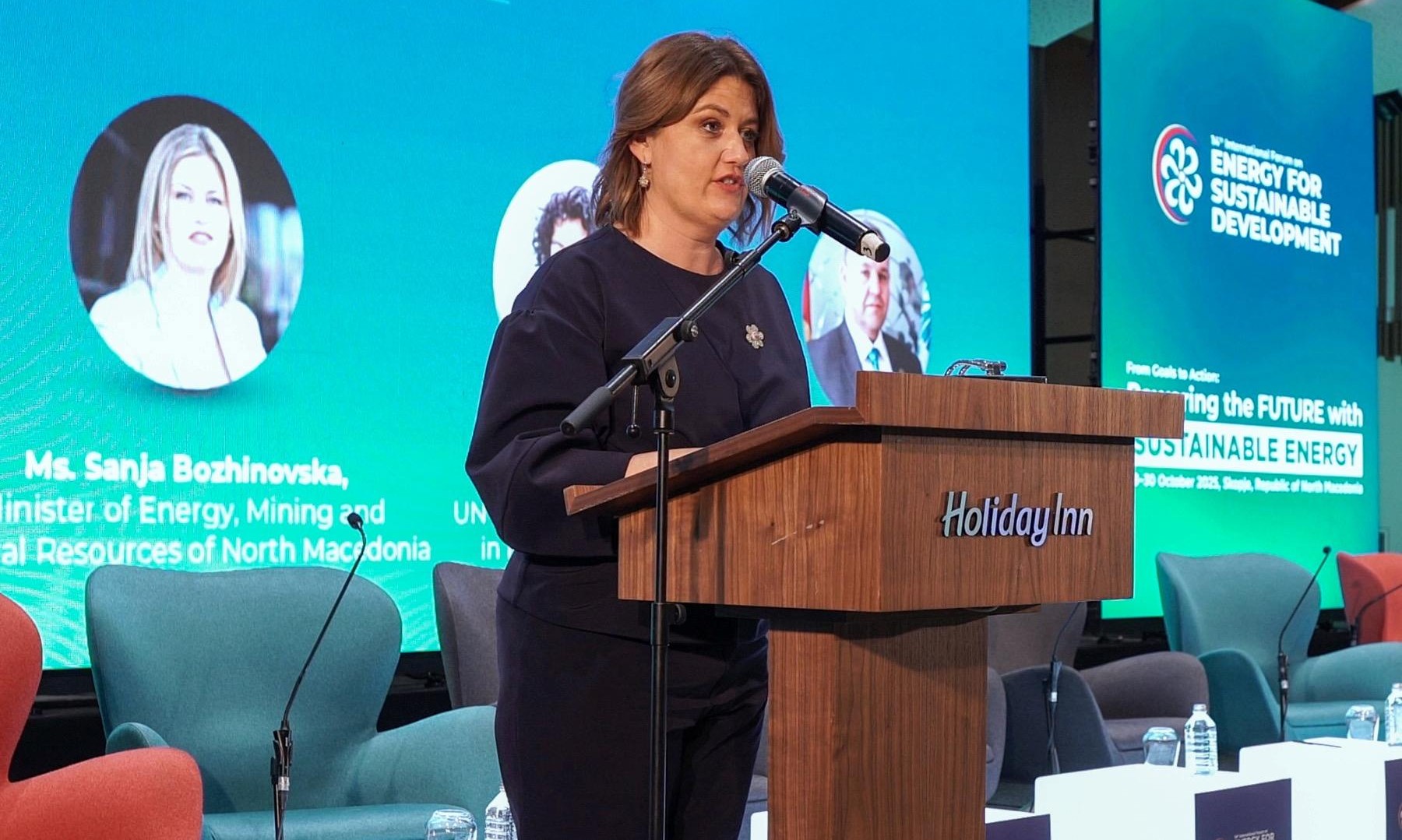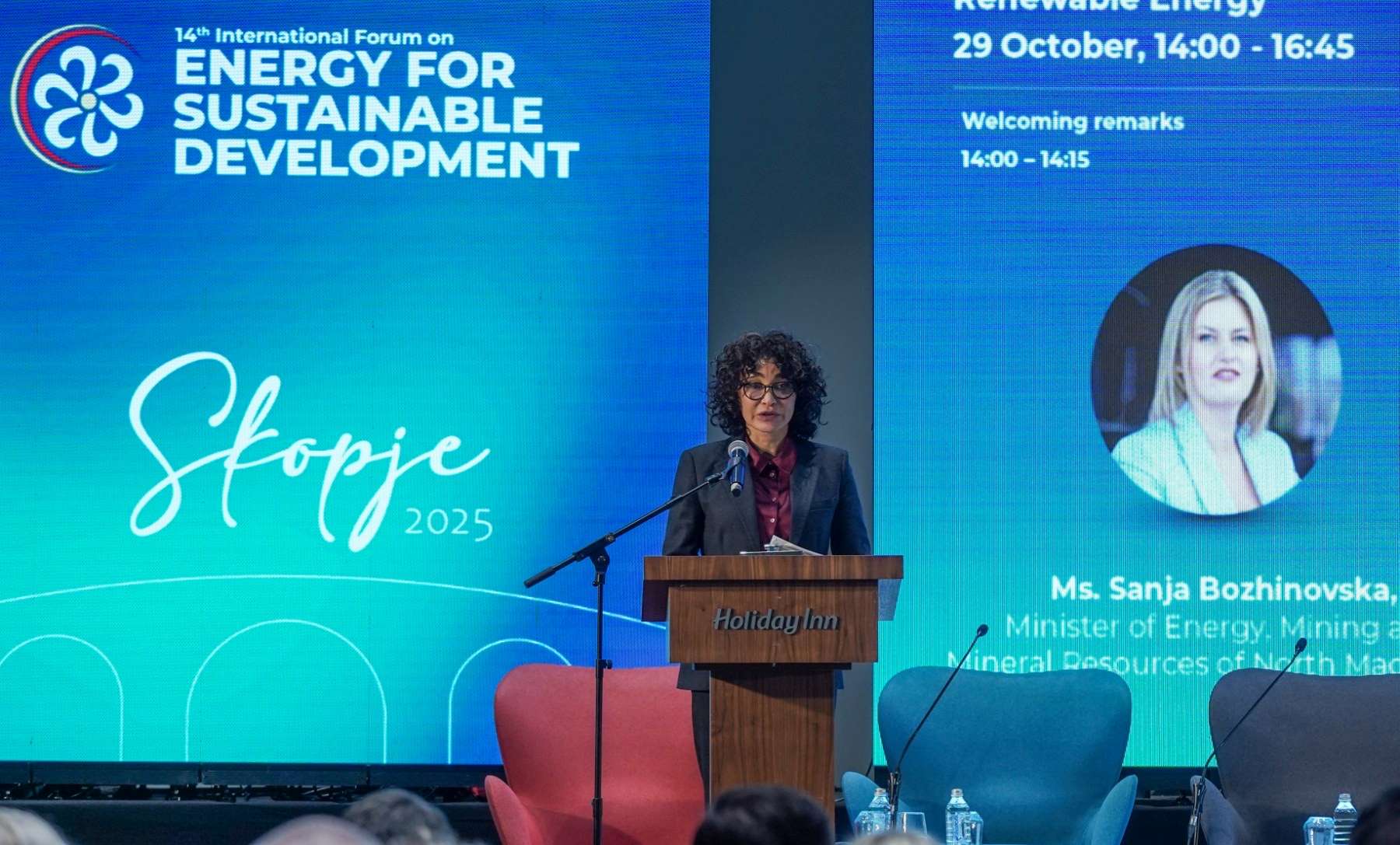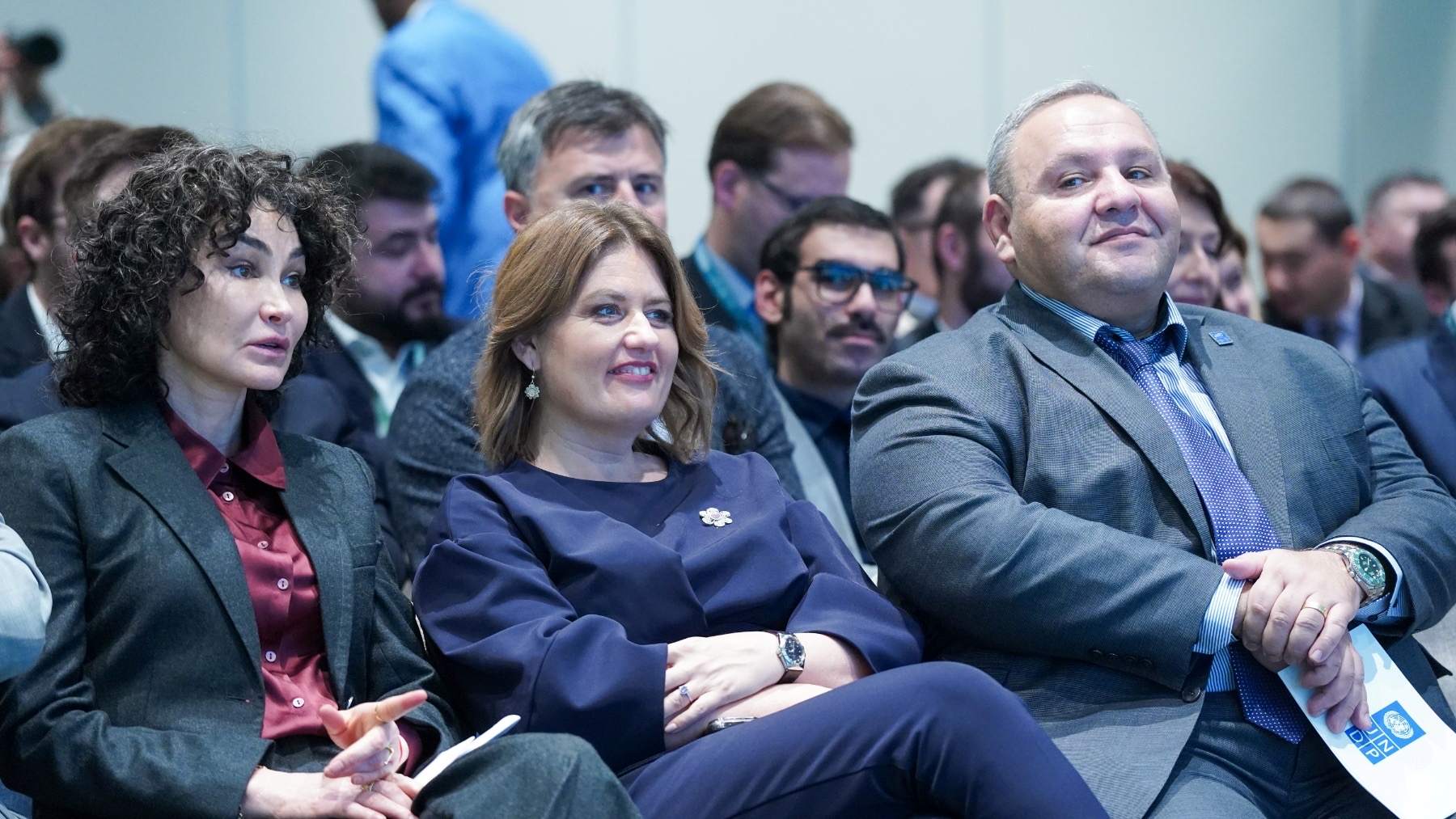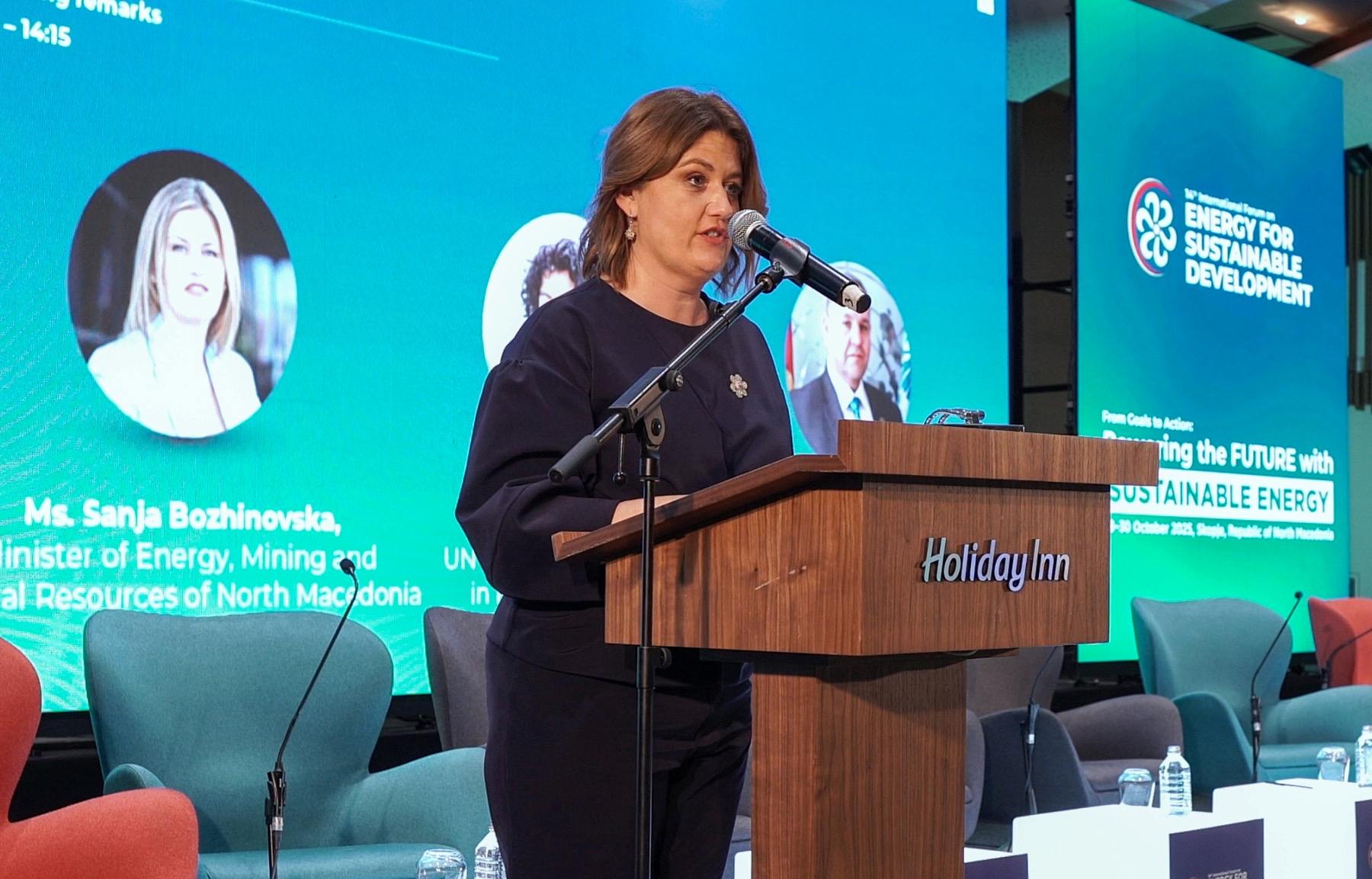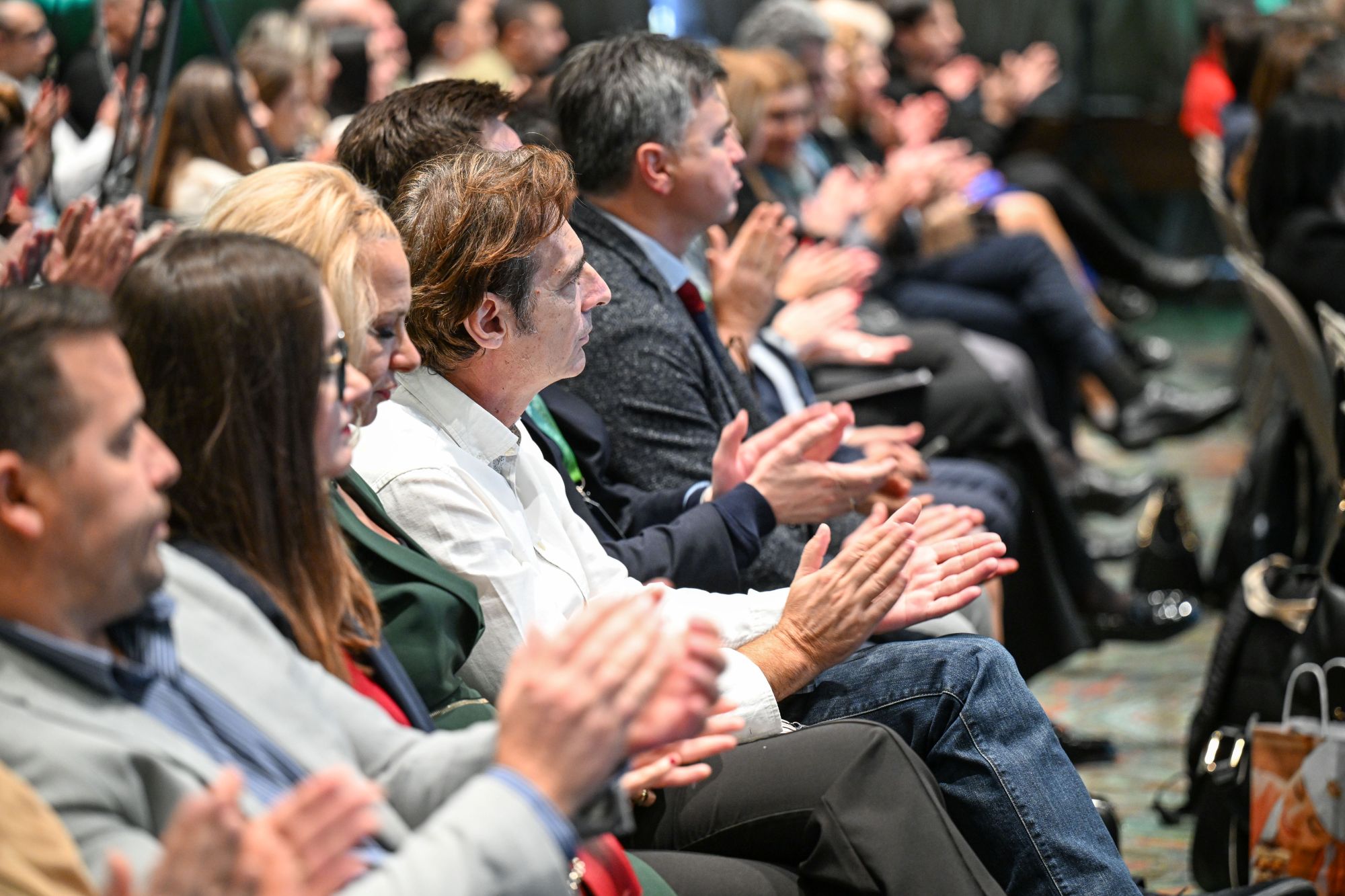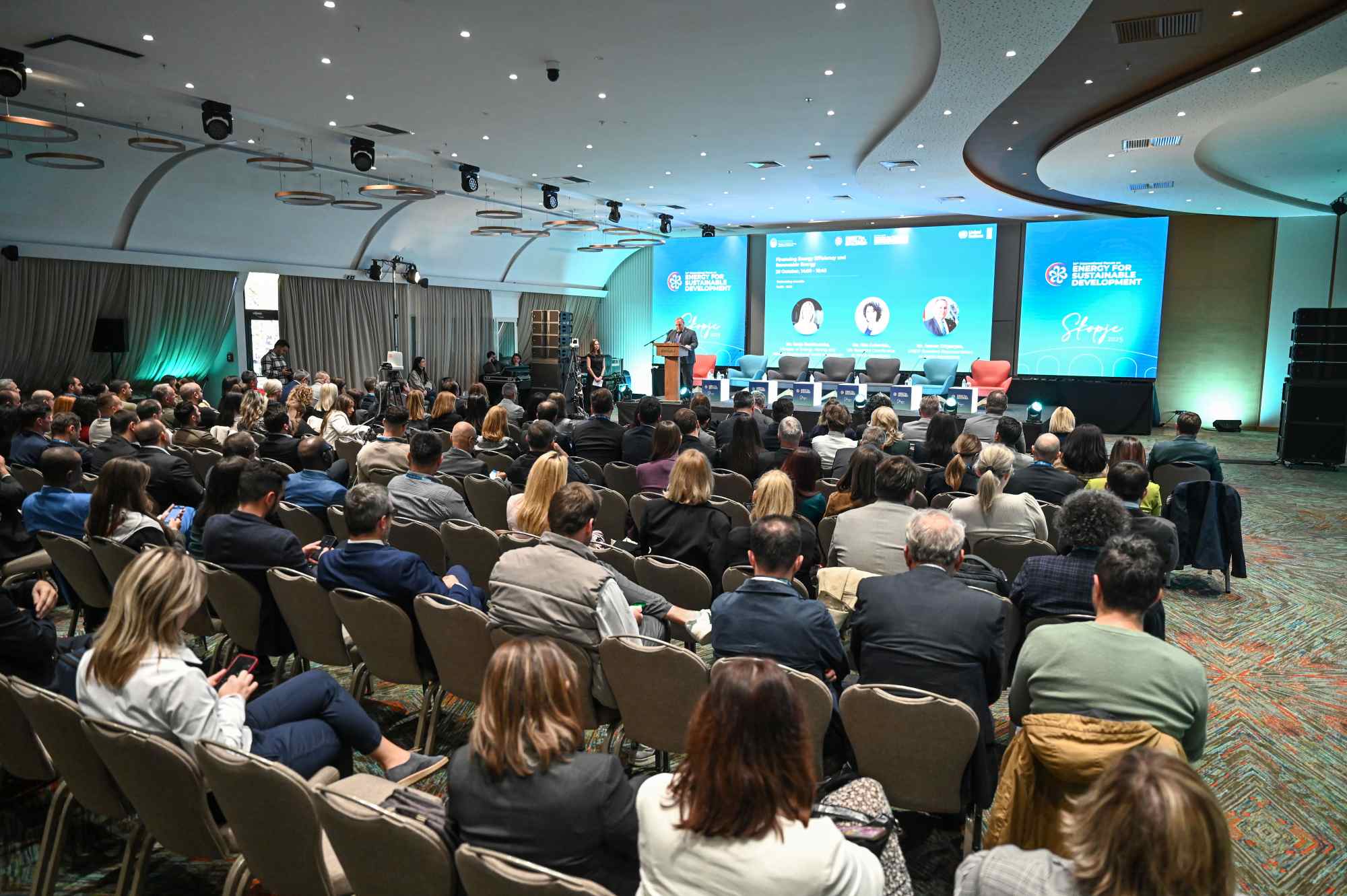Investments in energy efficiency and renewable sources imply predictable rules, digitalized and standardized procedures and de-risking instruments that catalyze private capital through local banks.
These are the key priorities that the Ministry of еnergy, mining and mineral resources (MERMS) sets as the immediate agenda at the panel “Financing Energy Efficiency and Renewable Energy”, within the 14th International Energy Forum for Sustainable Development – IFESD-14, held under the motto “From goals to action: Powering the future with sustainable energy”. The forum is organized in partnership with UNDP and the five UN commissions, and the focus is to create financial portfolios with ideas through standard documentation, aggregation of smaller initiatives and predictable deadlines for permits and connection to the grid with strong standards for measurement, reporting and verification of results.
Today's panel focuses on international financial institutions and new financial mechanisms to support the private sector aimed at saving costs and strengthening the efficient green transition.
The minister of energy, mining and mineral resources, Sanja Bozhinovska emphasized that the financial models must be aligned with the real needs of households, small and medium-sized enterprises and the industry.
"Clear criteria, transparent monitoring of results and stable, predictable regulation are a precondition for investor’s confidence. MERMS is already working on updating the legal and bylaw framework for energy efficiency and renewable sources, on simplifying and digitalization of the administrative procedures, on clarifying procedures and deadlines for connection to the grid, as well as on expanding access to favorable loans and mixed financing in cooperation with international financial institutions and local banks", minister Bozhinovska said in her opening address.
The IFESD-14 program is oriented towards practical solutions and measurable results. “Every euro invested today in energy efficiency and renewables is an investment in a healthier community, more competitive businesses and strategic resilience tomorrow. With harmonized rules, financing and implementation, we turn ambitions into projects that measurably reduce bills and emissions”, minister Bozhinovska added.
Rita Columbia, the United Nations Resident Coordinator in North Macedonia, also spoke in the introductory part, emphasizing that concrete models that catalyze capital are needed in order to stay on the decarbonization path. In 2022 alone, global investments in renewable energy and energy efficiency reached $1.3 trillion in 2022.
“Partnerships, trust and co-investment between governments, IFIs, the private sector and the UN are needed to close the annual trillion-dollar gap and accelerate just energy transition”, United Nations Resident Coordinator in North Macedonia, Rita Columbia said.
For the UNDP Resident Representative in North Macedonia, Armen Grigoryan, joint action to provide appropriate mechanisms and platforms for efficient and sustainable energy practices is essential.
“UNDP’s focus is to leave no one behind. With the ‘Green Finance Instrument’ program, through innovative solutions and cooperation between the public and private sector, we provide affordable financing for energy-efficient and renewable solutions, but we also contribute to reducing emissions, cleaner air and supporting those who need it most. With blended financing, we attract new investments. At the same time, with the ‘Air Pollution Reduction’ project, which is being implemented in six municipalities, we are also working on better energy efficiency, supporting the most affected families and using innovative tools to effectively tackle pollution”, Armen Grigoryan, the Resident Representative of the United Nations Development Programme (UNDP) stated.
Discussions include instruments that reduce risk for investors, models that combine public and private sources of financing and experiences from programs that have already brought energy savings, new installed renewable capacities and lower costs for users. Special emphasis is placed on technical assistance and support in preparation of projects, especially for municipal buildings, public lighting, industrial processes and distributed renewable sources behind the meter.
MERMS will continue to improve legal and bylaw solutions for EE and RES, by developing standardized guidelines, contracts and tender templates for municipalities, public institutions and companies.
In parallel, permit and connection procedures will be digitalized and shortened, clearer MRV procedures and criteria for selection and monitoring of projects comparable at national and international level will be introduced, and in partnership with international financial institutions, de-risking instruments and access to favorable loans will be expanded to encourage a greater inflow of private capital.
The program included a separate block for the Green Finance Facility (GFF) – the joint program that, through partnership between the Government, UN agencies, EBRD and local financial institutions, provides affordable funds for SMEs and underserved households, as well as panels with businesses and banks on practical steps to investments.
This year's Forum is marking record interest: over 600 participants from 70 countries are expected over the three days, including policymakers, government officials, representatives of international organizations and banks, academia, the energy business sector and civil society organizations. More than 150 experts are debating at 35 panel sessions on energy security and resilience, clean energy financing, digitalization of systems, management of critical raw materials, just transition, as well as the role of youth and women in the energy transformation.
With regards,
Ministry of Energy, Mining and Mineral Resources


